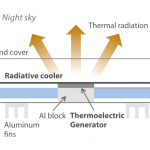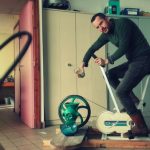- Your stuff is actually worse now. [Vox] How the cult of consumerism ushered in an era of badly made products.
- The Automation Charade. [Logic] The rise of the robots has been greatly exaggerated. Whose interests does that serve?
- How Stanford Failed the Academic Freedom Test. [Tablet] For America’s new clerisy, scientific debate is a danger to be suppressed.
- Minimal Computing. [Digital Humanities Climate Coalition] Minimal computing is a set of principles and practices that aim to reduce both environmental impact and barriers to access and engagement.
- Open hardware: From DIY trend to global transformation in access to laboratory equipment. [PLOS Biology] This Essay examines the global spread of open hardware and discusses which kinds of open-source technologies are the most beneficial in scientific environments with economic and infrastructural constraints.
- Riddle solved: Why was Roman concrete so durable? [MIT News]
- Speeding up. Prehistoric animal traction and the revolute joint. [Eva Rosenstock] The revolute joint, an innovation of the late fourth and the early third millennia BCE, brought about wheelsets and wheels for carts and wagons along with other applications such as pivoted doors, the potter’s wheel, and levers. In terms of acceleration, these innovations were as significant as the acceleration period we currently encounter that started with industrialization.
- The candle clock. [Wikipedia] While no longer used today, candle clocks provided an effective way to tell time indoors, at night, or on a cloudy day. Previously: Human alarm clocks.
- Brandalism. A revolt against the corporate control of our culture and space.
- Pickup Trucks: From Workhorse to Joyride. [Axios] In the 1980s, about half of pickup trucks were categorized as small or midsize, but by the 2010s small pickups had nearly vanished and fullsize trucks dominated.
No Tech Reader #36
January 31, 2023 by Filed Under: No Tech Readers





